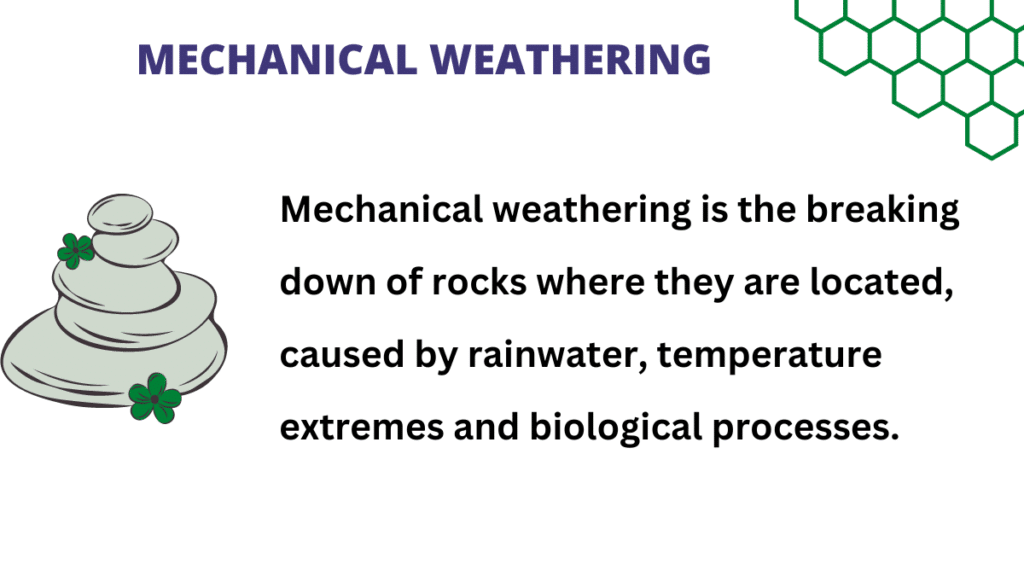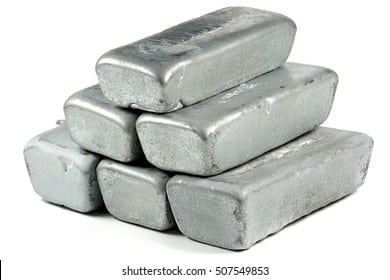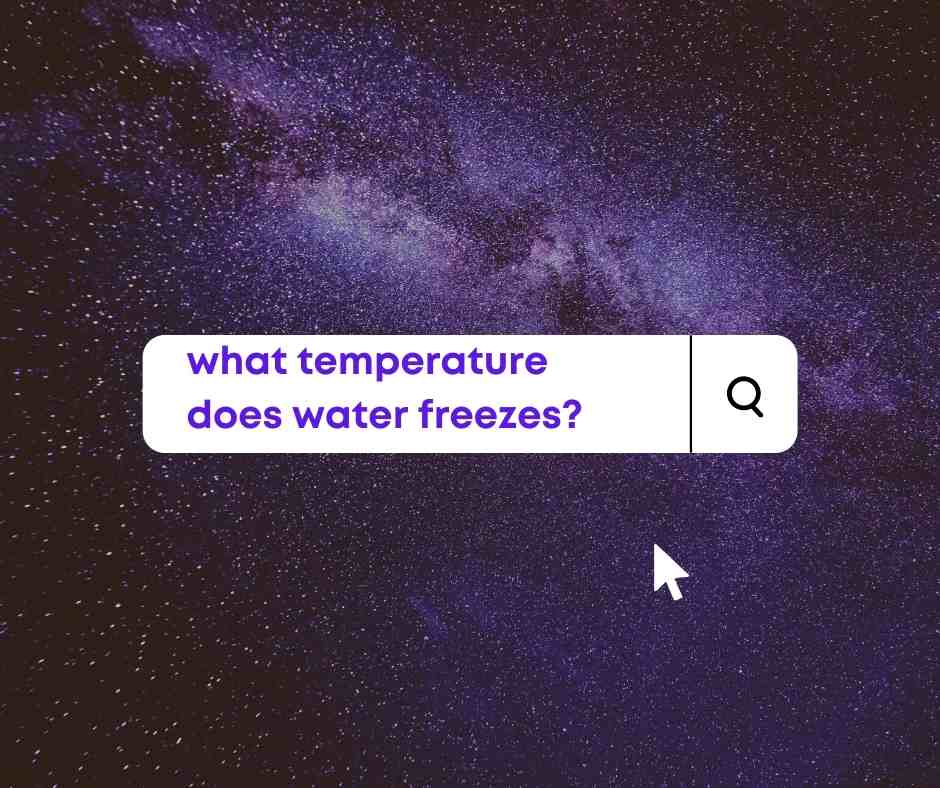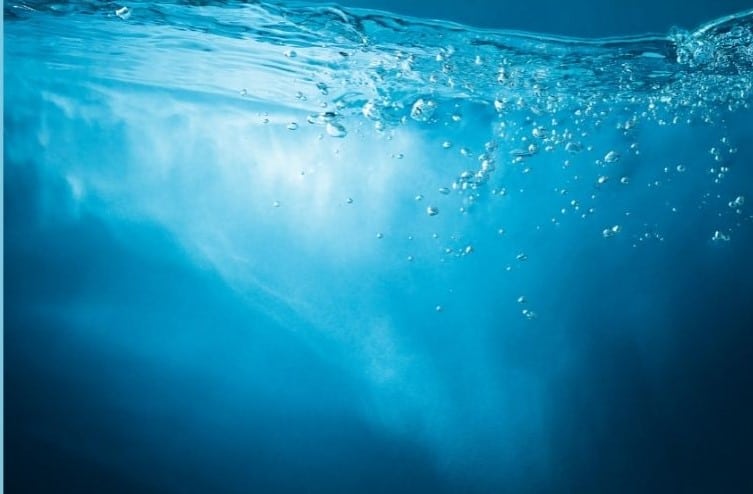Mechanical weathering, also known as physical weathering and disaggregation is a type of weathering which causes rocks to disintegrate. Water, whether liquid or solid, often an important role in mechanical weathering. Liquid water, for example, can seep through rock fissures and fractures. It eventually widens the crevices and fractures the rock.

Mechanical weathering is classified into five types: heat expansion, frost weathering, exfoliation, abrasion, and salt crystal formation. Mechanical weathering can be caused by ice wedging, pressure release, plant root growth, and abrasion. The force of expansion is strong enough to split the rocks apart in cracks and pores. This process, known as ice wedging, has the potential to break up large boulders.
In the case of rocks, Mechanical weathering reduces the size of rocks and increases the surface area of the overall material. Chemical processes may act more easily on the rock surface if the surface area is increased.
Table of Contents
What is Weathering?
Weathering is the physical or chemical breakdown/disintegration and decay of rocks at or near the earth’s surface.
Frequently Asked Questions
1. Why does oil float on water?
Oil floats on water because its density is lower than that of water. Density in liquids is defined as the amount of mass that may be filled in a cubic meter of volume. Water has a density of roughly 1000 kg/cubic meter, while oil has a density ranging from 800 to 960 kg/cubic meter.
More Important Links
- BCl3 Lewis Structure in four simple steps - November 1, 2023
- PH3 Lewis Structure in four simple steps - October 8, 2023
- PF3 Lewis structure in four simple steps - September 24, 2023



